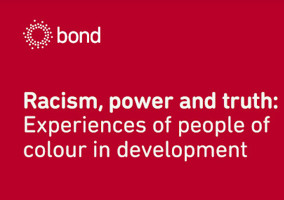Macmillan Cancer Support has launched a new equity, diversity and inclusion strategy which sets out its plan for the next four years.
The charity will be “shifting support” to engage people from diverse communities and evolving its internal culture.
Lynda Thomas, chief executive at Macmillan, has set out its EDI commitments in a blog.
The charity has created new governance structures to oversee this plan. As part of this, Thomas will chair a group and it includes representatives from the board and from across the organisation and employee network groups.
Macmillan has also introduced Perspective Panels, which aim to give a platform to voices in the organisation from a range of backgrounds to talk about their lived experience.
Targeted leadership training
One priority is around organisational culture and leadership.
Thomas writes: “We want to be representative at all levels of our organisation and ensure everyone who works with or supports us, feels they belong. But it’s not easy. There’s no denying that Macmillan, like the wider charity sector, has a problem with the diversity of its workforce, especially at a leadership level.”
Macmillan will be investing in targeted leadership training, overhauling its recruitment practices “to root out ingrained bias”, and setting targets to recruit more people from underrepresented groups.
“Whilst we have a way to go on this both as an organisation and a sector, I want to see people from a diverse range of backgrounds nurtured and flourishing into the future leaders our sector so badly needs,” she said.
Branding must be representative of communities
The next priority is around how Macmillan presents itself. The brand, fundraising products and activities, adverts, and information, “must be representative of the communities we are here to serve”.
In her blog, Thomas pledges to review “every element of our communications” to ensure that it is representing effectively and “actively challenging the stereotypes and tropes that we unknowingly might perpetuate”.
Making cancer services accessible to everyone
The last priority outlined in the blog is to “make sure people with cancer from all backgrounds feel cancer services are accessible and inclusive”.
This the “most critical pillar” in delivering the plan, and the charity will invest further in supporting people living with cancer from “seldom heard communities”.
This will be achieved in four ways. First, through its own direct services like the helpline, second with its partners including the NHS, third by investing in a more targeted way, and lastly by advocating for better and equitable outcomes for everyone living with cancer.
“I am particularly excited by the possibility of Macmillan investing in organisations that are already serving these communities, combining our resources with their expertise and influence to bring about wider change for everyone. This is all about deepening our understanding of what holds us back from reaching all the people that need us,” Thomas’s blog concludes.
Thomas added: “The challenges and barriers that exist for many people in every part of our society are just as present in cancer care, and even within Macmillan itself. This week we took an important step in calling out and dealing with those barriers by launching our new equity, diversity and inclusion strategy to our colleagues.
Related articles













